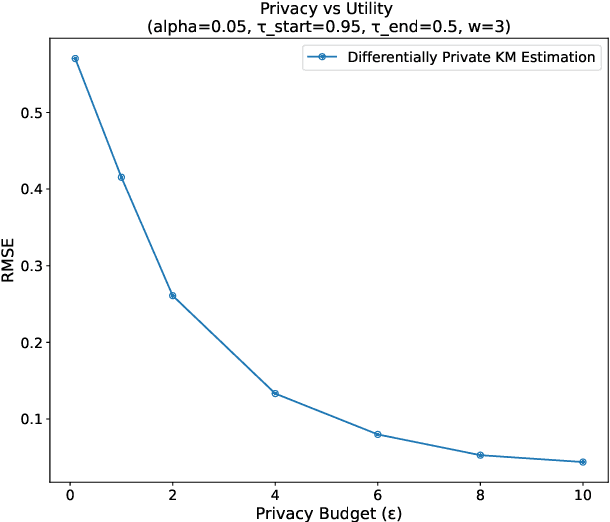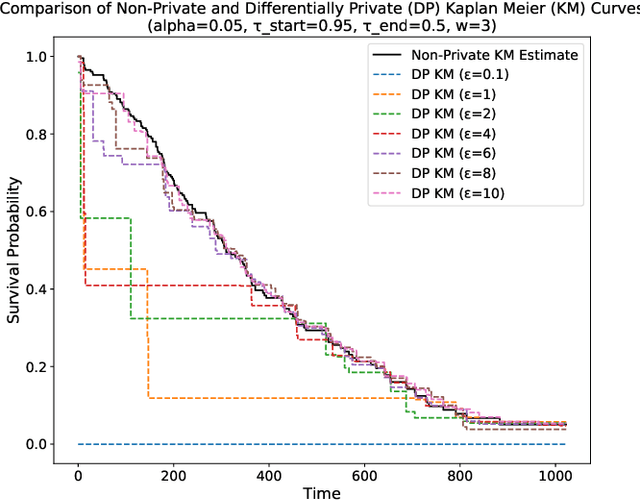A Differentially Private Kaplan-Meier Estimator for Privacy-Preserving Survival Analysis
Paper and Code
Dec 06, 2024



This paper presents a differentially private approach to Kaplan-Meier estimation that achieves accurate survival probability estimates while safeguarding individual privacy. The Kaplan-Meier estimator is widely used in survival analysis to estimate survival functions over time, yet applying it to sensitive datasets, such as clinical records, risks revealing private information. To address this, we introduce a novel algorithm that applies time-indexed Laplace noise, dynamic clipping, and smoothing to produce a privacy-preserving survival curve while maintaining the cumulative structure of the Kaplan-Meier estimator. By scaling noise over time, the algorithm accounts for decreasing sensitivity as fewer individuals remain at risk, while dynamic clipping and smoothing prevent extreme values and reduce fluctuations, preserving the natural shape of the survival curve. Our results, evaluated on the NCCTG lung cancer dataset, show that the proposed method effectively lowers root mean squared error (RMSE) and enhances accuracy across privacy budgets ($\epsilon$). At $\epsilon = 10$, the algorithm achieves an RMSE as low as 0.04, closely approximating non-private estimates. Additionally, membership inference attacks reveal that higher $\epsilon$ values (e.g., $\epsilon \geq 6$) significantly reduce influential points, particularly at higher thresholds, lowering susceptibility to inference attacks. These findings confirm that our approach balances privacy and utility, advancing privacy-preserving survival analysis.
 Add to Chrome
Add to Chrome Add to Firefox
Add to Firefox Add to Edge
Add to Edge